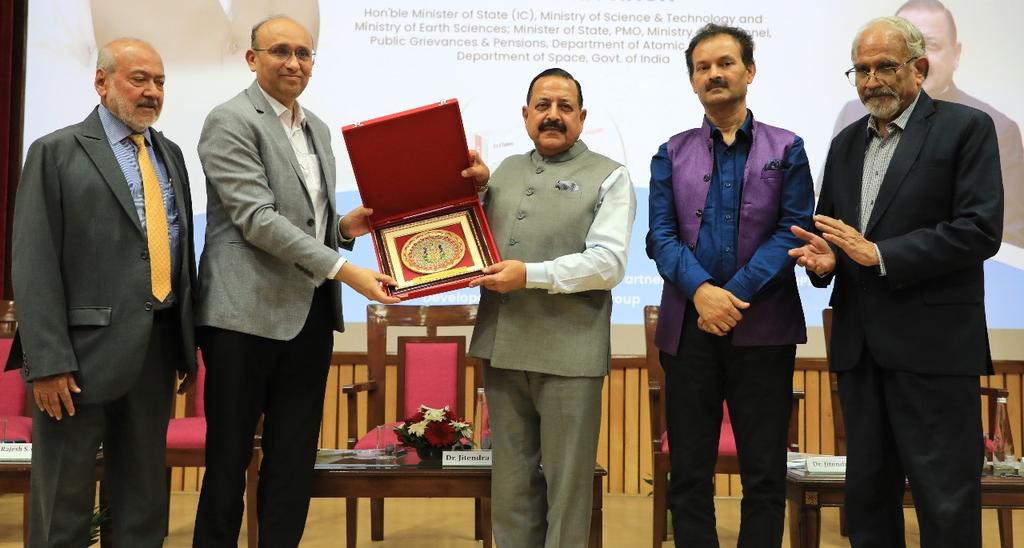New Delhi, Nov 21: In a significant milestone for India’s biotechnology sector, Union Minister Dr. Jitendra Singh has unveiled Nafithromycin, the nation’s first indigenously developed antibiotic, designed to address antimicrobial resistance (AMR).
Dr. Jitendra Singh emphasized that significant strides in Indian research and development have been made since 2014 under the leadership of Prime Minister Narendra Modi, whose support has empowered scientists to explore their potential fully. He credited the Prime Minister’s personal intervention in making these advancements more attainable. It was launched on November 20.
Developed with support from the Biotechnology Industry Research Assistance Council (BIRAC)—a unit of the Department of Biotechnology—Nafithromycin has been introduced to the market under the trade name Miqnaf by pharmaceutical company Wockhardt. It is India’s first antibiotic targeting Antimicrobial Resistance (AMR), a global health crisis, and is specifically designed to treat Community-Acquired Bacterial Pneumonia (CABP) caused by drug-resistant bacteria.
The minister highlighted the three-day treatment regimen of Nafithromycin as a revolutionary approach to addressing drug-resistant pneumonia, a condition responsible for over 2 million deaths annually. India, which accounts for 23% of the world’s pneumonia burden, has struggled with rising resistance to existing antibiotics such as azithromycin. Clinical trials validate Nafithromycin as ten times more effective than current options, offering a faster, safer, and more tolerable treatment.
The antibiotic demonstrates superior efficacy by targeting both typical and atypical pathogens. Remarkably, Nafithromycin is the first new drug in its class to be developed globally in over 30 years. Its benefits include minimal gastrointestinal side effects, no significant drug interactions, and consistent performance regardless of food intake, enhancing its versatility for patients.
The development of Nafithromycin represents 14 years of dedicated research and an investment of Rs 500 crores, supported by BIRAC’s Biotechnology Industry Partnership Program (BIPP). Clinical trials in the U.S., Europe, and India underscore its global relevance. The antibiotic now awaits final approval from the Central Drugs Standard Control Organization (CDSCO) before entering widespread use.




